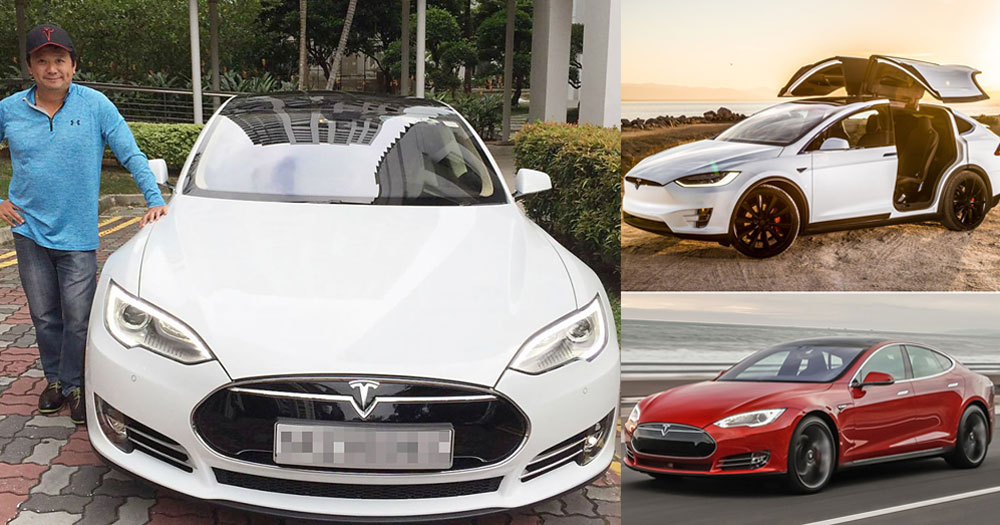As part of Singapore's efforts to mitigate climate change and reduce the country's carbon emissions, the government will be introducing new measures to encourage the switch to electric vehicles (EVs), which are cleaner and more environmentally friendly.
This is part of the government's vision to phase out vehicles with internal combustion engines (ICEs) by 2040, as these contribute significantly greenhouse gas pollution.
The move was announced by Deputy Prime Minister Heng Swee Keat at the Budget meeting on Feb. 18
These are the three new measures announced by Heng:
1. Up to 45 per cent rebate on Additional Registration Fee
One incentive to encourage the adoption of EVs is a new rebates scheme, called the EV Early Adoption Incentive.
Under this, those who purchase fully electric cars and taxis will receive a rebate of up to 45 per cent on the Additional Registration Fee.
The Additional Registration Fee is a tax charged upon registration of the vehicle, and is based on the Open Market Value of the car.
The rebate will be capped at S$20,000.
This incentive will be implemented for three years, from Jan. 2021 onwards.
Another scheme, the Commercial Vehicle Emissions Scheme, will also be introduced for light goods vehicles.
This is similar to the Vehicular Emissions Scheme announced in 2018 for cars and taxis, where buyers who choose cleaner or hybrid car models will receive an upfront rebate of up to S$20,000 (car buyers) and S$30,000 (taxi operators).
More details of this second scheme will be announced during the Ministry of Environment and Water Resources Committee of Supply debate.
2. More EV charging infrastructure
According to a 2019 article by CNA, there are currently around 1,036 fully electric vehicles plying the roads in Singapore.
The adoption of EVs can be said to be limited by the availability of charging infrastructure as well, which number around 1,600 island-wide.
DPM Heng thus announced that the government would be working with the private sector to install more charging points in public carparks.
The aim is to deploy up to 28,000 chargers at public carparks island-wide by 2030.
Currently, charging points can be found at some carparks, with Shell recently unveiling 10 charging points at their stations around the island.
3. Government to take the lead in adopting cleaner vehicles
Heng also announced that the government will be taking the lead in progressively procuring and using cleaner vehicles.
This is a "significant bet" on electric vehicles, he said, and it requires a significant increase in demand to justify the investment in new infrastructure and technology.
Changes to vehicular tax structure
Heng however, cautioned that the transition towards EVs will have a major impact on the country's tax revenues.
Taxes on petrol and diesel, also known as fuel excise duties, yield around S$1 billion per year, and are significant contributors to government revenues.
These excise duties also act as a form of mileage tax, which helps discourage driving and reduce the number of vehicles on the roads.
As EVs do not pay fuel excise duties, the current vehicular tax structure needs to be updated to accommodate this.
Heng added that in an ideal situation, EVs would be subject to a usage-based tax. However, this would require Next-Generation ERP Systems which rely on distance-based charging.
This technology though, is still several years away.
In the meantime, EVs will be subjected to a lump-sum tax that will be built into the existing road tax schedule for EVs. This is to partly account for the loss of fuel excise duties.
This lump-sum tax will be progressively phased in over three years, starting from Jan. 2021.
The full tax will then be implemented in Jan. 2023.
Heng acknowledged that total road tax will be higher for some EV models, after taking into account the revision in tax structure and the new lump-sum tax.
This lump-sum tax is on top of tax levied based on the EV's power rating, and differs based on the licensing period.
For EVs registered in 2021, the six-month lump-sum component is S$100. This will increase to S$200 in 2022 and S$350 in 2023.
However, EV buyers can still benefit from cost savings from the EV Early Adoption Scheme, Heng noted.
Top main photo features Joe Nguyen with his Tesla Model S in Singapore, Model X 75D & Model S P85D
If you like what you read, follow us on Facebook, Instagram, Twitter and Telegram to get the latest updates.
